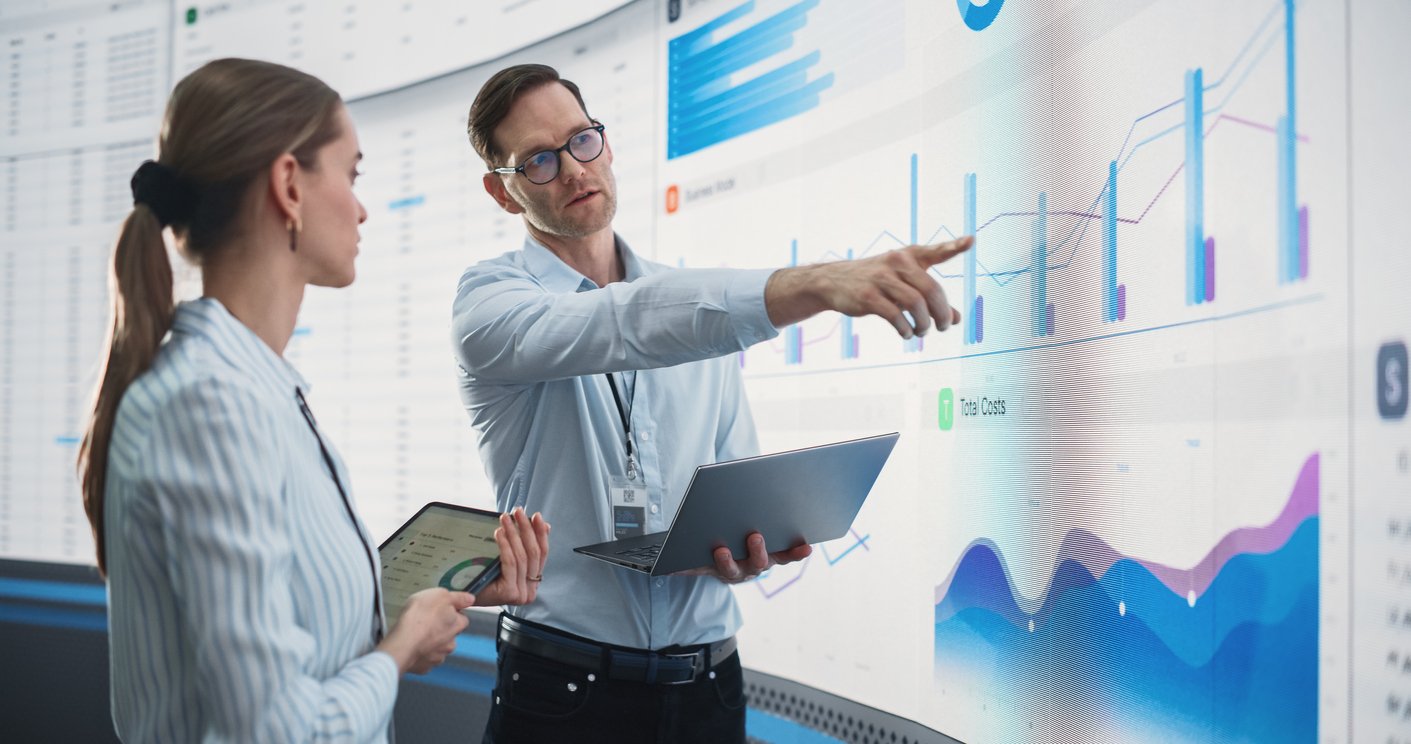Data science projects are a tool for solving problems. Just as large companies feed on data in their daily lives, extracting huge benefits, there's no reason why the third sector can't have those same benefits.
At DSSG PT (Portuguese Association of Data Science for Social Good), we divide data science projects into three categories: Analyse and report, test and model, and automation. These are distinguished by the amount of data required/their technical complexity, but also by the return they bring to the associations. In this article, we describe each of these, with real examples from our association's projects.
Analysing and reporting
In this first category, projects consist of a numerical and visual description of operations. They are often the entry point for associations into projects that use data, due to the impact generated by low-complexity projects.
This includes the creation of interactive pages (dashboards) that are always updated according to the current version of a company's data (using Tableau / PowerBI, for example). In most cases, the existence of previously created databases is a prerequisite.
In the context of analysing and reporting projects, an example is our collaboration with the CAIS Association to evaluate and communicate the social impact of the CAIS magazine in Portugal. In addition to this, the association's pilot project with Rotaract Santo Tirso consisted of an exploratory analysis of the data from the National Peditory for the Portuguese League Against Cancer in Santo Tirso, with suggestions for improvements to the fundraising process.
Testing and modelling
The second category consists of modelling/simulating certain phenomena through mathematical predictions. In this context, a forecast is the process of filling in missing information using information we have available in another context (the data).
For example, this type of project allows us to answer questions such as:
- "what drives someone to donate?", knowing the demographics of historical donations
- "how much stock do I need to have of my product in stock this week?", knowing the normal volume of orders at this time of year
- "what is the probability of a fire in this area next week?", knowing the meteorological data for the area, the amount of vegetation, ... and how this correlates with historical fires.
With this, the aim is to adapt operations according to the expected results:
- "users aged 25-35 have a high propensity to donate without any campaign"
- "I need to order 100kg of rice"
- "I need extra resources near the Évora area"
Here we highlight our work with the Portuguese Zoophile Association to identify causes and optimise waiting times for veterinary appointments at the association's veterinary hospital. We built a predictive model for the expected volume of appointments per day, taking into account the seasonalities seen in the historical data.
Automation
Finally, we have the category of automation - decision support and/or automation of logical but very labour-intensive tasks, freeing up people for high value-added tasks.
In this context, we give the example of our collaboration with Fruta Feia, an association in the field of combating food waste, with the aim of developing an automatic tool to suggest the contents of fruit and vegetable baskets. The association's vision was to optimise the process of preparing their baskets and promote a greater rotation of products and producers.
Recently, the launch of Large Language Models (such as ChatGPT) has made it easier to automate many routine tasks, with their support for reading documents and generating content. In the future, we'll give examples of how this technology can be used by associations to simplify their day-to-day work.
The next steps
At DSSG, we want to ensure that obstacles don't get in the way of the associations' ability to realise their ideas and their missions to create a better world. That's why we are so dedicated to ensuring that each association's data is used for the right purpose, making the most of it with simple steps.
Our association tries to bring together Makers (data volunteers) with Beneficiaries (IPSS, non-profit organisations, public administration) through the implementation of short-term projects. We also collaborate with organisations by providing consultancy support (common mistakes, good practices, supporting the adoption of new tools).
We invite associations to make an assessment of their needs, trying to fit project ideas into each of these categories.
Paulo Maia



